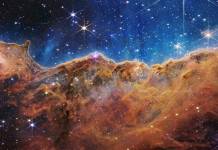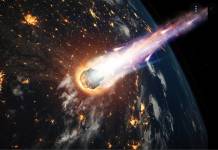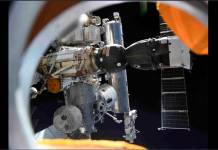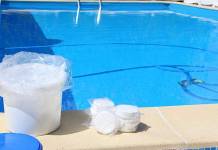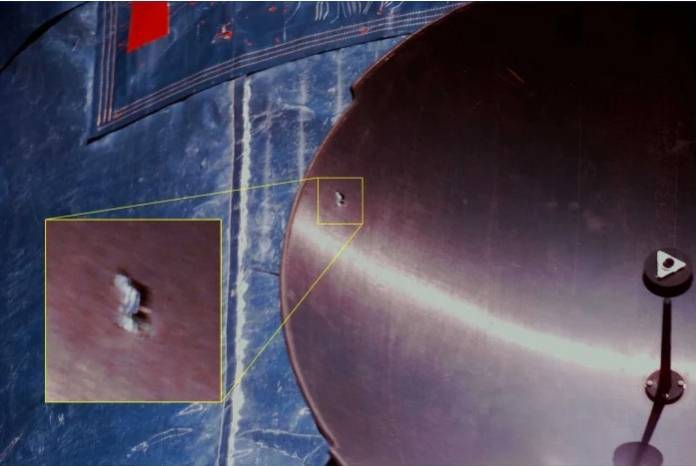
Unknown space junk has hit and damaged part of the International Space Station (ISS). When the damage that occurred is unknown and currently being investigated, but it was detected during routine maintenance on May 12. The space debris hit and punctured the ISS section known as the Canadarm2 robotic arm.
The Canadarm2 used to be known as the Space Station Remote Manipulator System (SSRMS) and it was developed by the Canadian Space Agency. It was fixed on the ISS 20 years ago, and it has been fully operational since then. It is a robotic arm made of titanium and used for moving objects outside the ISS, as well as maneuvering cargo shuttles and performing routine maintenance activities at the space station.
Since NASA and the CSA cannot determine the exact kind of space junk that hit the station, they are taking detailed images of the impact to assess the extent of the damage. The damage affected the arms boom and thermal blanket of the Canadarm2 but the robotic arm remains fully functional, the CSA revealed in a blog post.
“Despite the impact, results of the ongoing analysis indicate that the arm’s performance remains unaffected,” the CSA wrote in a blog post. “The damage is limited to a small section of the arms boom and thermal blanket. Canadarm2 is continuing to conduct its planned operations.”
The accident of the damage draws more attention to the risks faced by the ISS against thousands of space debris in the low-Earth orbit occupied by the ISS. There is always the danger that the ISS may collide against a large space junk and suffer extensive damage, giving that over 23,000 space junk are being tracked by space agencies.
The speed at which many of the space debris is traveling in orbit can puncture metal plates and wreak extensive damage on spacecraft. In 2020, the ISS performed emergency maneuvers three different times to avoid direct collisions with junks at its 400km (250 miles) altitude above the Earth. But space experts say the ISS may not be so lucky another time.
Even though space agencies are tracking more than 23,000 space debris, the European Space Agency (ESA) said an estimated 130 million space junks smaller than one millimeter are currently orbiting the Earth, and these are separate from natural space dust in orbit.
“To continue benefiting from the science, technology, and data that operating in space brings, it is vital that we achieve better compliance with existing space debris mitigation guidelines in spacecraft design and operations,” said Tim Florer, director of ESA’s Space Debris Office. “It cannot be stressed enough – this is essential for the sustainable use of space.”
Source: sciencealert.com

